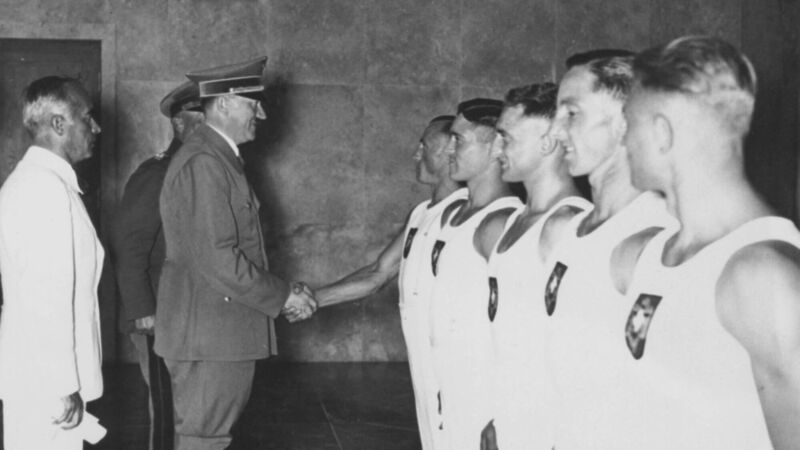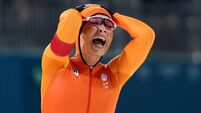Paul Rouse: It is always amusing to hear the Olympic movement claim that it lives above politics

FACING EVIL: German dictator Adolf Hitler shakes hands with British rower Jack Beresford after he and Leslie Frank ‘Dick’ Southwood won the double sculls event at the 1936 Berlin Olympics. Also present are members of the German gymnastics team.












